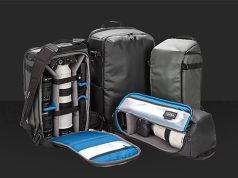
As many of us know—from painful firsthand experience or simply reading the news—Mother Nature can strike with devastating ferocity. The last two years alone have brought earthquakes, record heat waves, wildfires, floods, super typhoons, blizzards, landslides and droughts to many parts of the world.
During these extreme weather situations and natural disasters, the last thing on consumers’ minds is protecting the hard drives on their computers. Yet by not thinking about them, they leave the digital memories stored on those devices at risk.
As a photo retailer, part of your responsibility should be constantly reminding your customers how important it is to protect the digital still and video memories they are capturing and saving to these hard drives.
Our friends at DriveSavers (drivesaversdatarecovery.com), the data recovery folks, have compiled a list of several precautions folks can take during extreme weather warnings to protect hard drives and the precious data residing in them. Passing these essentials along to your customers may elicit the trust they’ll need to come to you for all their backup needs.
Before the Storm
• If possible, unplug your hardware, laptops, printers and other electronic devices from all power sources.
• Invest in a surge protector. Surge protectors and battery backups should be checked or replaced every few years to ensure the highest level of effectiveness—and they are a nice accessory sale as well.
• To protect your electronics from the possibility of water damage, be sure to enclose any valuable devices in plastic, or place in a watertight plastic bin or waterproof outer casing—yet another nifty accessory sale.
If your hardware is on the ground of your home or office, be sure to lift them from the floor to protect them from flood damage. (In fact, as a matter of course you should not store sensitive electronics directly on the floor.)
• Sometimes it is inevitable that hardware will be damaged so back up your data and back up often! This will prevent data loss even if the device itself is destroyed. While there are reasons to be wary of online data storage, it may make sense for people in disaster-prone locales, since their files will be stored on remote servers that will be safe from whatever disaster takes down their main computer.
If Disaster Strikes
So what happens if an act of nature does damage a computer or external drive? Here’s what to do, and what not to do:
• Do not use utility software if the drive makes scraping, tapping, clicking or humming sounds.
• Do not power up a device that has obvious physical damage or is making unusual sounds.
• Shut down the computer to avoid further damage to the drive and its data.
• Do not attempt recovery yourself if a drive exhibits the above symptoms (i.e., turning the computer off and on, using over-the-counter diagnostic tools). This may cause further damage or permanent data loss.
• Don’t panic! If you have lost critical data, there are many professional data recovery companies that specialize in recovering data, quickly and securely. Perhaps it’s a service you can look into offering or team with an outside service.
The bottom line: if you have customers that live in an area that’s at least somewhat prone to serious natural disasters, flooding or catastrophic storms, it’s worth making sure those folks take steps now—before disaster strikes—to safeguard digital photos and video collections.
We’re big fans of using/selling external hard drives to store digital data, and it makes a lot of sense to store those drives in waterproof/fireproof safes when not in use; both categories offer some solid accessory margins as well.
Making multiple copies of stills and videos is also great advice to pass along to your customers.
Simply stated, make sure your customers realize that the only way to ensure their digital memories are passed down to future generations is to protect them now. And as a retailer, you might want to remind yourself that lost memories can never be turned into future profits for your business.





